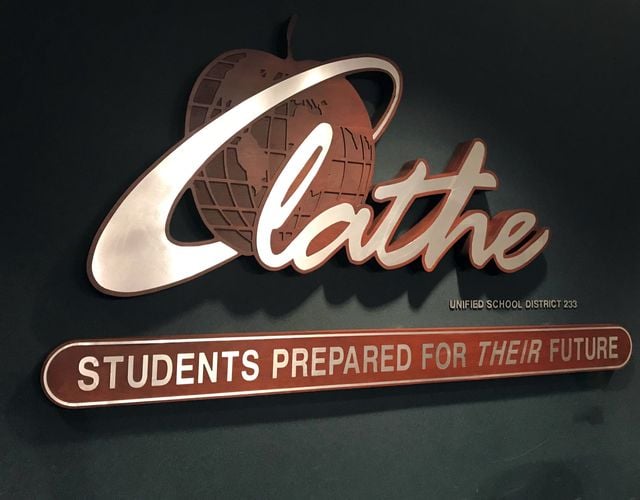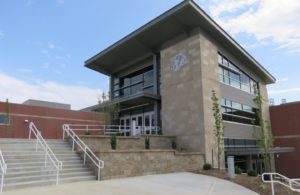Kansas mom delivers scathing indictment of her large school district’s dyslexia services
(The Sentinel) – Olathe mom Amanda Thompson, frustrated by what she saw as the Olathe School District’s inability to improve her children’s dyslexia and achievement in the classroom, took the…

(The Sentinel) – Olathe mom Amanda Thompson, frustrated by what she saw as the Olathe School District’s inability to improve her children’s dyslexia and achievement in the classroom, took the extraordinary step to move her family to Florida for treatment at The Morris Center in Ocala.
In her own words from a statement delivered to The Sentinel:
“I’m saying goodbye to Olathe!
“IMO, the system is failing our kids!
“As of yesterday, we are officially residents of the FREEDOM state, Florida!
“Sad to say but we just couldn’t do it anymore. Our son and oldest daughter are dyslexic and need intervention to help them not only learn but thrive. We didn’t get my son diagnosed until February of this year. We knew something was not working and were determined to get to the bottom of it. He was reading at a 1.5 grade level even though he was getting A’s and B’s on his report card, he was struggling, and he knew it. He was frustrated, had confidence and self-esteem issues, and I could see him feeling defeated as his peers progressed. I wanted better for him. The special education resource teachers and classroom teachers have their hands tied. They can only do what they are allowed to do or trained to do.
“My son had been screened by OPS (Olathe Public Schools) for dyslexia and wasn’t found to be bad enough to warrant bringing it to our attention. I showed a fellow mama and she said his scores weren’t low enough.
“Help me understand: reading at a 1.5 grade level as a 12-year-old entering 6th grade (which should be 7th, but we held him back a year) isn’t low enough?
“Thankfully, God opened a door, and the two of us have been in Ocala, Florida, at The Morris Center since March. He has been doing an intensive program (5 days a week, 6 sessions a day) through The Morris Center, which uses the NOW! program. As of this week, he is reading 6th-grade books with 95% accuracy.
“In addition to reading, he is also working on his visual, short-term and long-term memory as well as grammar and writing. His confidence and can-do attitude are growing each day. It is expensive and a sacrifice, but we wouldn’t do it any differently.
“Next year, he will attend The Morris Center Academy in Ponte Vedra. My daughter will do the online program and attend specialized occupational therapy in person.
“I’ve heard The Morris Center (NOW! program) is working with a few counties in Florida to try to get their online programs made available to students after school using Covid funds. There are ways that work, that actually help kids not only learn and grow but thrive.
“Our kids deserve better. They are not robots to be passed by and hope that they figure it out. There are programs out there that really work and need to be looked into. Feel free to reach out if you want more info on our journey. There is hope and you have options!
“There are families here getting services from Washington State, Hawaii, Texas, Arkansas, North Carolina, Virginia, and Missouri.”
We reached out to Olathe School Superintendent Brent Yeager and asked, “how bad is bad enough?” a case of dyslexia before parents are made aware of the condition and services offered by the school district. We received the following response from USD Communications Director Maggie Kolb:
“I am unable to comment on specific student or family situations, but I can share that the district has a comprehensive, multi-tiered system of supports to help students with dyslexia and characteristics of dyslexia and other learning challenges. Educators use universal screeners at all levels to help identify students that need extra support. After that, the district takes it one step further by conducting a diagnostic screener that identifies an area of need and better informs educators in their decision-making process regarding which intervention is best for that specific child. In addition, we have implemented research-backed programs like 95% group to support our students.
“Additionally, all teachers in the district have been trained on dyslexia and training around the science of reading. As always, our goal is to work with every individual family through any needs their student might have. Also, please remember that school districts do not provide any diagnosis.”
The district’s non-response is not surprising, given the state’s poor ranking for providing dyslexia services. District officials could explain what constitutes ‘bad enough’ to qualify for services, but chose to ignore the question.
Jeanine Phillips is the Co-Founder of the Phillips Fundamental Learning Center literacy program in Wichita. She labels this case as “confusing” and “disturbing” but not unique:
“Kansas’ parents are desperately needing poignant information related to why their kids are resistant to go to school, cry when they come home from school, are sick in the morning when they wake up, realizing it’s time to go to school, irritate their teachers when they can’t perform, confuse their parents (who know they are smart) when they feign stupidity, confusion, ignorance in social and academic environments, yet demonstrate incredible intuitive knowledge when it comes to design, engineering, mathematical understanding, and visual spacial genius. Dyslexia is a very misunderstood and non-identified population (child or adult) in the State of Kansas.”



